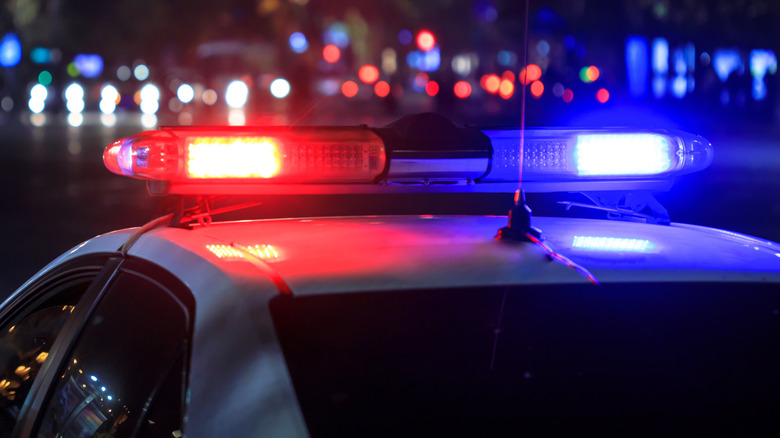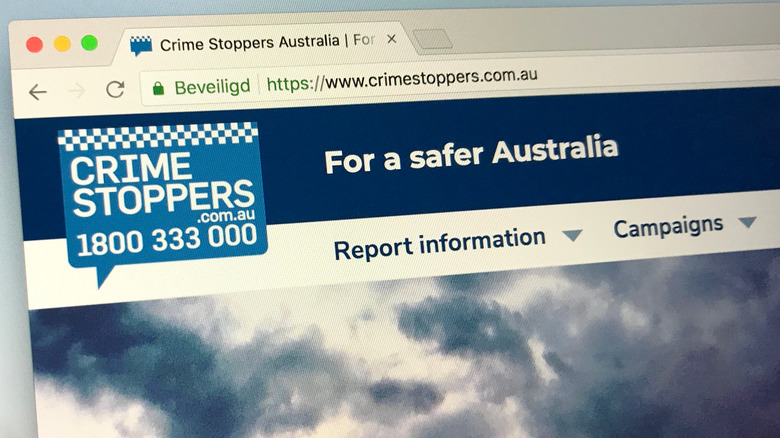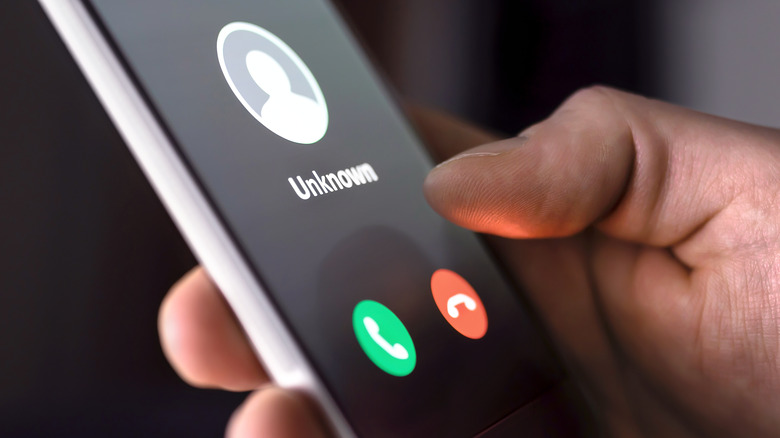How Do Police Tip Lines Work?
You've seen it unfold in the movies a million times — an unsuspecting bystander witnesses a grisly crime, ponders whether or not he/she was seen witnessing it, then ultimately decides to become an anonymous witness. Generally, in real-life scenarios like these, a call is placed to Crime Stoppers or some other tip line that bumps information up to authorities trying to locate a suspect — information that ideally leads to a much sought-after arrest. However, there's always that looming anxiety that prods at the back of one's mind after providing an anonymous tip that suggests it'll somehow be traced back to the source by the criminal or the police and result in their own demise.
It begs the question of whether or not this can actually happen. If you or someone you know calls Crime Stoppers and reveals a piece of sensitive information, is your identity really safeguarded? Can the person on the other end of the line categorically guarantee your personal information will not be divulged to the police or to any other inquiring entity? Maybe you're afraid you'll incriminate yourself for some degree of involvement you may have had in a crime. Regardless, the answer is still the same: Yes, your identity is pretty much ironclad in its anonymity if you contact a police tip line (via N.B. Crime Stoppers).
How do anonymous tips work?
Essentially, Crime Stoppers is a vast network that's broken into smaller factions particular to different regions, states, and/or communities. However, their paradigm for handling sensitive information is universal. According to N.B. Crime Stoppers, when someone calls a tip line, they're given a code number that they're told to keep secret. Their name is not required or requested, nor any other personal information beyond their gender (this information is not revealed to police), which is only revealed through their voice. The code is meant to grant callers continued access to their specific claim with Crime Stoppers if they wish to continue giving information. Caller ID does not appear, the call isn't recorded, you're not required to appear in court, and you don't have to make an official police statement.
If, hypothetically speaking, the "tipster" accidentally reveals any personal information, it's discarded from the documentation of the call entirely. Maybe you broadly remarked on your proximity to the crime and how you live near where it happened. That information would vanish from the file given to the police, so you're safe from any prospective breach of your privacy. Such rights extend to the Crime Stoppers operator as well, as it's illegal for police to demand any personal information from the Crime Stopper's representative or the person they spoke to. However, there are exceptions (per N.B. Crime Stoppers).
Exceptions to the rule of anonymity
By and large, your identity is not liable to be discovered by police or anyone else if you call a tip line, though that really depends on your intention. If, as Crime Stoppers of Hamilton reports, the caller is reaching out with the goal of "furthering criminal activity or interfering with the administration of justice," then the police can and are likely to seek out their identity. In the United States, this is a Fourth Amendment/search and seizure issue, so a warrant would be required if authorities were to postulate the tipster meets this criterion.
According to Thomas & Paulk, P.A., a tipster's identity/other details can in fact be required to secure a practical prosecution, though police are reluctant to entertain this course of action for a number of reasons, the prime one being that they don't want to deter others from coming forward and revealing valuable information. The tipster is also liable to cut off communication if his or her identity is compromised during a trial. All in all, if your reason for calling a tip line is strictly to contribute to finding a suspect and aiding in an investigation, you can count on the promise of total anonymity (via N.B. Crime Stoppers).


